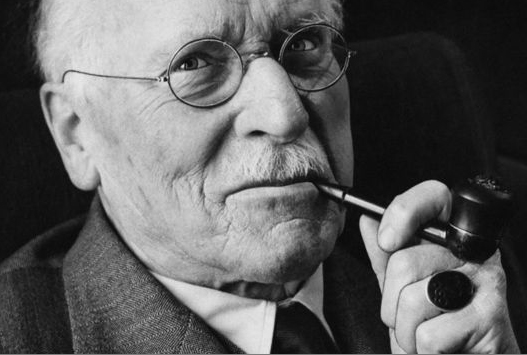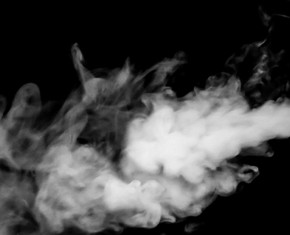The views expressed in our content reflect individual perspectives and do not represent the authoritative views of the Baha'i Faith.
At their peak, religion and psychotherapy become one. – Marianne Williamson
When we were both in graduate school, I asked a friend of mine to tell me about his religion. He said “Psychotherapy–I worship at the altar of Freud and Jung every week.” I laughed, but later I realized that modern psychology does serve as a kind of religion for millions of people. Psychology has replaced religion for many people, and millions now utilize it for self-knowledge and understanding. But not everyone sees it as a panacea. “A secular cult of self,” one critic called the contemporary practice of psychotherapy, “now part of the problem of modern life, rather than part of its resolution.”
So what’s your religion—an actual religion, or the science of psychology? Which one do you use to explore your self, your psyche, your soul? Which one explains your inner reality best?
Of course, we’ve always wondered about the human mind and the inner self. Socrates, Plato and Aristotle wrote treatises on consciousness, and defined early psychology as the study of the soul. The great Islamic philosophers and scientists Avicenna, Alhazen, Witelo and Ahmed ibn Sahl al-Balkhi identified, described and treated the first neuropsychiatric disorders. During the Enlightenment, Descartes, Kant, Locke and Liebniz advanced a whole host of psychological concepts in their books and essays. But no one truly practiced psychology or called themselves a psychologist until the 19th Century.
In fact, the actual science of psychology and the Baha’i Faith emerged into the world’s consciousness at about the same time, in the mid- to late-1800s. When psychology began as a separate scientific discipline in the 1870’s–founded by a perspicacious German physician named Wilhelm Wundt–it faced tremendous opposition from traditionalists, from the clergy and from the general public, in much the same way the Baha’i Faith did at its inception. Many people saw psychology as the modern equivalent of witchcraft, mistrusting its motives and dismissing its claims.
Now, however, a century and a half later, psychology has firmly entrenched itself into our collective mindset, at least in the western world. We recognize its insights into the human psyche, and understand that it has helped many people lead happier and better-adjusted lives.
During the past hundred years, though, the relationship between psychology and religion has progressed, from open antagonism to complementary and sometimes even congruent worldviews. Humanistic, transpersonal and positive psychology now emphasize intellectual, emotional and spiritual growth, the actualization of inner potential, and the innate nobility of each person. That holistic approach to life, with its emphasis on transcendence and the inner values that make us more fully human, has enormous resonance with the Baha’i principles.

Many contemporary psychologists and psychiatrists have advanced thoughts and theories in concert with various aspects of the Baha’i teachings—Abraham Maslow, Carl Rogers, Rollo May, Viktor Frankl, R.D. Laing and several others. However, one of the great pioneers and thinkers in psychology, Carl Jung, seemed to have a particularly harmonious, Baha’i-like viewpoint that spanned multiple areas of interest. Since Jung is regarded as the founder of analytical psychology, and as the first psychologist to focus his attention on mental health rather than mental illness, in this short series of essays we’ll explore some of the remarkable parallels between the Baha’i teachings and the discoveries and theories in Jung’s work.
Unlike Freud, Jung accepted the role of faith and the existence of God:
If one attempts to assign to religion its place in man’s evolution, it seems not so much to be a lasting acquisition, as a parallel to the neurosis which the civilized individual must pass through on his way from childhood to maturity. – Freud
God has fallen out of containment in religion and into human hearts—God is incarnating. Our whole unconscious is in an uproar from the God Who wants to know and to be known. – Jung
Unlike his contemporaries, Jung’s view of the human psyche included a powerful spiritual component, a theistic psychology that emphasized seeking and finding healthy, lasting inner meaning:
I have frequently seen people become neurotic when they content themselves with inadequate or wrong answers to the questions of life. They seek position, marriage, reputation, outward success of money, and remain unhappy and neurotic even when they have attained what they were seeking. Such people are usually confined within too narrow a spiritual horizon. Their life has not sufficient content, sufficient meaning. If they are enabled to develop into more spacious personalities, the neurosis generally disappears. – Jung
Jung’s concepts have a remarkable resonance with the Baha’i teachings, and in some cases even use the same kinds of language. Compare this quote to the one above, for example:
One who is imprisoned by desires is always unhappy; the children of the Kingdom have unchained themselves from their desires. Break all fetters and seek for spiritual joy and enlightenment; then, though you walk on this earth, you will perceive yourselves to be within the divine horizon… But man himself may become a captive to the things he has invented. His true second birth occurs when he is freed from all material things: for he only is free who is not a captive to his desires. – Abdu’l-Baha, Abdu’l-Baha in London, pp. 87-88.
Please follow along in this series of essays as we take a unique look at the founder of analytical psychology and the ways the Baha’i teachings inform and underpin his insights into the human mind and soul.
















Comments
Sign in or create an account
Continue with Googleor